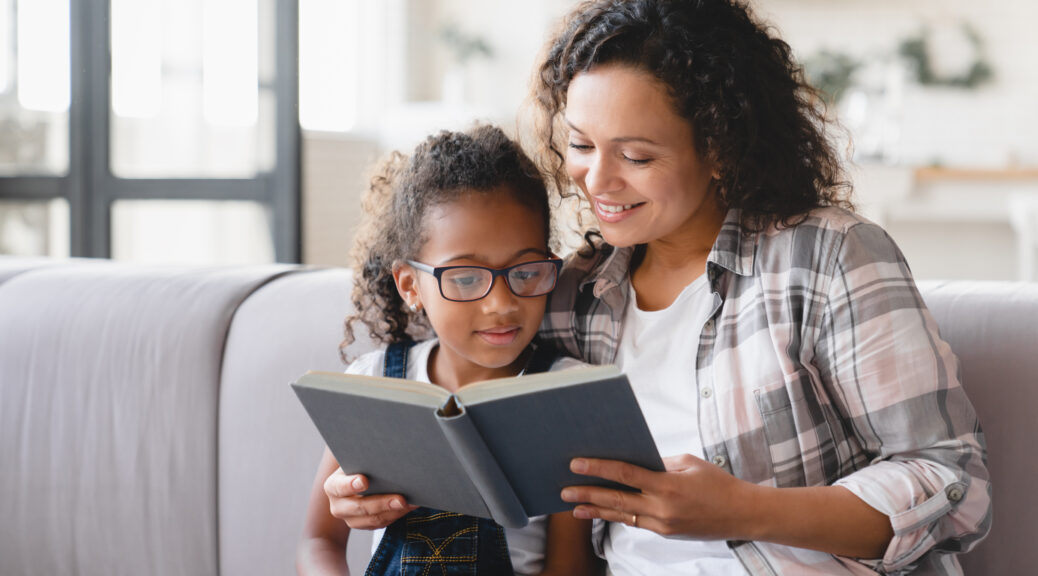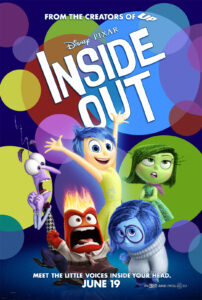Media for Kids’ Mental Health: Camber Staff Picks

Understanding mental health is a crucial part of childhood development, and various forms of media—from books to movies to online resources—can play a powerful role in helping children and teens navigate their emotions. By engaging with stories and activities that speak to their experiences, young people can better understand their mental health, practice self-regulation and learn to express themselves in healthy ways.
At Camber Mental Health, our staff members interact with children facing a wide range of challenges, from anxiety to social struggles. With this in mind, we asked our team to share some of their favorite media resources that can help children and their families explore mental health and emotional wellbeing. Here’s what they recommend:
How Full Is Your Bucket? For Kids
Recommended by Annmarie Arensberg, LSCSW, Vice President of Clinical Access and Outreach
This heartwarming book teaches children about kindness, empathy and self-awareness through the metaphor of an invisible “bucket.” Every interaction a child has either fills or empties their bucket — and that of others. It’s a wonderful tool for fostering conversations about the importance of positive relationships and emotional wellbeing.
This book can also be a valuable conversation starter for families, Annmarie explains. “As a family, you can talk about bucket-filling and draining moments throughout your day and use this as a communication tool to check in with your kids and even adults around you!”
No, David!
Recommended by Akieri Castle, Associate Director of Program Services
For younger children, No, David! offers a playful way to help kids understand boundaries and the significance of hearing the word “no.” It provides a gentle introduction to accepting limits and processing feelings that arise when things don’t go their way.
Inside Out and Inside Out 2
Recommended by Brynn Fowler, Senior Director of Operations & Compliance
These animated films bring the complex world of emotions to life, helping children (and adults!) visualize feelings like joy, sadness, anger and fear. They’re fantastic tools for encouraging conversations about emotional transitions and mental health challenges in a way that’s relatable and fun. “As a child or adolescent, these movies are fun, interactive and relatable, which hopefully normalizes a lot of the mixed emotions that youth typically experience,” Brynn shares.
Available on Disney+
Health Powered Kids Website
 Recommended by Marlayna Hargitt, BSN, RN, Director of Nursing, Camber Hays
Recommended by Marlayna Hargitt, BSN, RN, Director of Nursing, Camber Hays
This resourceful website offers interactive activities to teach kids about both physical and mental wellbeing. The activities encourage children to get moving and understand how their bodies and minds work together for overall health.
My Warrior Pose
 Recommended by Kimberly O’Connor-Soule, Senior Inpatient Officer
Recommended by Kimberly O’Connor-Soule, Senior Inpatient Officer
My Warrior Pose is an empowering book that helps children understand their emotions and physical responses when they’re overwhelmed. Written by KVC’s own Dr. Abyssinia Washington Tabron, this resource offers kid-friendly language and visuals, making it easier for young readers to grasp self-regulation techniques and identify their feelings. “It gives amazing examples of how to identify feelings, what happens to our bodies when emotions get high and tips on how to help regulate those big feelings,” Kimberly says.
Finding Nemo
Recommended by Zhané White, Marketing Manager
This beloved animated movie offers a comforting message about overcoming fear, adapting to challenges and building courage. It’s a great watch for children dealing with anxiety, showing them that even the most daunting situations can be faced with resilience and support. “The core message of the movie is about letting go and overcoming fear, which I think are perfect examples of skills needed for children who have challenges with decision-making and navigating their own emotions,” says Zhané.
The Wild Robot
Recommended by Tiffany Deschner, Associate Director of Nursing Services
Shipwrecked on a deserted island, a robot named Roz must learn to adapt to its new surroundings. Based on a book by the same title, the movie The Wild Robot explores many themes that will spark conversations among children, teens, parents and caregivers — from the importance of kindness to the importance of family and community. “I feel like this movie really focuses on inclusion and accepting others regardless of who they are, where they came from or what they look like,” Tiffany shares.
Available on Amazon and Apple TV
Mental Health Center Kids
 Recommended by Trevor Kennedy, Associate Director of Programming
Recommended by Trevor Kennedy, Associate Director of Programming
Mental Health Center Kids provides mental health and social-emotional learning resources for children and teens. “These resources provide real-world situations and information for children of all ages, allowing for learning, tips and skills on leading mental health topics,” Trevor adds.
HealthyGamerGG YouTube Videos
 Recommended by Janny Silvay, Director of Admissions
Recommended by Janny Silvay, Director of Admissions
Although not specifically for children, this channel features discussions on mental health that are relevant to young people, especially those who are into gaming. It offers insights on mental wellness, balancing screen time and emotional regulation, which parents can find helpful too.
Superpower Books: Kindness, Mindfulness, Acceptance, Gratitude, Confidence, Honesty, Patience, Love
Recommended by Cayde Sterling, Director of Administration
“I recommend these books because they have great illustrations, and rhymes and teach young children the value and impact of each title listed above,” Cayde says. Valuable for all ages, the Superpower books empower children to grow into kind friends and people of character.
Visit the author’s site for more details.
Why Media Matters for Children’s Mental Health
Media can be a powerful tool for helping children process and understand their emotions. Whether through the relatable characters of Inside Out, the comforting story of Finding Nemo or the hands-on activities on the Health Powered Kids website, these resources provide meaningful ways for children to engage with their feelings. By integrating these types of media into their daily routines, parents and caregivers can foster open communication about mental health, encourage emotional growth and provide support during challenging times.
Camber: Your Partner in Children’s Mental Health
At Camber Children’s Mental Health, we are committed to providing comprehensive support for children and teens experiencing mental health challenges. Our team of dedicated professionals is here to help families navigate the complexities of mental health care. We encourage you to reach out if you have concerns about your child’s emotional wellbeing. Together, we can work toward your child’s brighter, healthier future. Call us today to learn more about how we can support your family.











